Startup Course Instructors
 Keith Marmer serves as chief innovation & economic engagement officer at the University of Utah. In this role, Keith has transformed the culture of commercialization at University of Utah, launching three accelerators, a business incubator and a venture fund to support startup companies, facilitating the creation of 52 companies, and generating more than $60 million in university revenue from licensing and industry collaborations. His strong leadership skills come from 30 years of experience as an inventor, entrepreneur and investor. He has three patents, launched three companies, and helped entrepreneurs raise more than $1 billion in investment capital. Previously, Keith was co-founder and managing director of SG3 Ventures, a venture capital fund focused on early-stage life science companies. Prior to SG3 Ventures, Keith was chief business officer at Penn Center for Innovation, University of Pennsylvania. Before his university-based commercialization roles, he was an entrepreneur, founding and scaling two companies and co-founding a consulting firm that advised early-stage growth companies. Across his career, Keith has launched, help to launch or overseen teams responsible for starting more than 140 companies. Keith serves, and has served on numerous corporate and non-profit boards and is a past entrepreneur-in-residence at Princeton University. He received an MBA, Doctor of Physical Therapy, Master of Physical Therapy and Bachelor of Science in Health Sciences from University of the Sciences.
Keith Marmer serves as chief innovation & economic engagement officer at the University of Utah. In this role, Keith has transformed the culture of commercialization at University of Utah, launching three accelerators, a business incubator and a venture fund to support startup companies, facilitating the creation of 52 companies, and generating more than $60 million in university revenue from licensing and industry collaborations. His strong leadership skills come from 30 years of experience as an inventor, entrepreneur and investor. He has three patents, launched three companies, and helped entrepreneurs raise more than $1 billion in investment capital. Previously, Keith was co-founder and managing director of SG3 Ventures, a venture capital fund focused on early-stage life science companies. Prior to SG3 Ventures, Keith was chief business officer at Penn Center for Innovation, University of Pennsylvania. Before his university-based commercialization roles, he was an entrepreneur, founding and scaling two companies and co-founding a consulting firm that advised early-stage growth companies. Across his career, Keith has launched, help to launch or overseen teams responsible for starting more than 140 companies. Keith serves, and has served on numerous corporate and non-profit boards and is a past entrepreneur-in-residence at Princeton University. He received an MBA, Doctor of Physical Therapy, Master of Physical Therapy and Bachelor of Science in Health Sciences from University of the Sciences.
 Paul Corson has led entrepreneurial initiatives in the United States, Europe, Latin America, the Middle East and Asia for nearly three decades. His focus on entrepreneurship cuts across the public and private sectors, as well as NGOs and higher education. Paul has held leadership roles in three startup companies, developed and implemented public policy at the federal level for the Secretary of Commerce, NASA, and the White House, and spurred technology commercialization, access to capital, and business formation in higher education.
Paul Corson has led entrepreneurial initiatives in the United States, Europe, Latin America, the Middle East and Asia for nearly three decades. His focus on entrepreneurship cuts across the public and private sectors, as well as NGOs and higher education. Paul has held leadership roles in three startup companies, developed and implemented public policy at the federal level for the Secretary of Commerce, NASA, and the White House, and spurred technology commercialization, access to capital, and business formation in higher education.
At PIVOT, Paul has facilitated the launch of dozens of companies aided by three technology accelerators, a business incubator, and a highly successful in-Residence program. Previously, as the founding Chief of Staff, Paul oversaw efforts to launch and build the Office of Innovation & Entrepreneurship for the President of the University of California System. Paul was also the founding Executive Director of Innovation Fund America, a national family of pre-seed startup investment funds housed within community colleges that has invested over $13M in more than 200 companies. At the U.S. Department of Commerce (DOC), Paul served as Deputy and Acting Director and launched and managed the Office of Innovation and Entrepreneurship. Also while at DOC, he managed the National Advisory Council on Innovation and Entrepreneurship; helped design, launch, and manage a congressionally-authorized national grant program that has subsequently award over $100M for technology-based economic development; and co-managed and co-hosted President Obama’s Global Summit on Entrepreneurship.
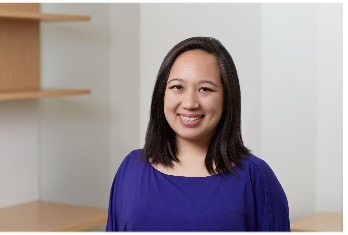 Jennifer Fang is a partner in the Boston office of Wilson Sonsini Goodrich & Rosati. She helps innovative start-ups grow into successful enterprises by providing counsel to the founders, management teams, and boards and by handling the legal and strategic business issues and transactions that arise at each stage. She is experienced in negotiating and executing a variety of corporate transactions, including conversions, spinouts, debt and equity financings, public offerings, PIPEs, mergers and acquisitions, and joint ventures. She also counsels venture capital, growth capital, and strategic investors with respect to their investment transactions and their existing portfolio companies. Her practice focuses on companies that can improve patient lives and healthcare through innovations and advances, including in gene editing, cell therapy, novel therapeutics, synthetic biology, proteomics, diagnostics, bioinformatics, medical devices, and research and manufacturing tools and processes.
Jennifer Fang is a partner in the Boston office of Wilson Sonsini Goodrich & Rosati. She helps innovative start-ups grow into successful enterprises by providing counsel to the founders, management teams, and boards and by handling the legal and strategic business issues and transactions that arise at each stage. She is experienced in negotiating and executing a variety of corporate transactions, including conversions, spinouts, debt and equity financings, public offerings, PIPEs, mergers and acquisitions, and joint ventures. She also counsels venture capital, growth capital, and strategic investors with respect to their investment transactions and their existing portfolio companies. Her practice focuses on companies that can improve patient lives and healthcare through innovations and advances, including in gene editing, cell therapy, novel therapeutics, synthetic biology, proteomics, diagnostics, bioinformatics, medical devices, and research and manufacturing tools and processes.
She is a frequent speaker on corporate and securities topics, such as company formation risks, equity compensation issues, angel and venture financing terms, and founder pitfalls, and currently serves on the General Counsel Advisory Board of the National Venture Capital Association.
Jennifer is co-chair of the firm’s Diversity, Equity, and Inclusion Committee and serves on the investment committee for the firm's affiliated fund, the WS Investment Company. She’s also a member of the firm’s Career Development Committee and the Boston office hiring committee. In her free time, she enjoys mentoring young lawyers, entrepreneurs, and investors in the local community.
 Doug Hockstad serves as the Associate Vice President of Tech Launch Arizona, UArizona’s technology commercialization organization, providing services to find commercial applications for university research and support the creation of startups based on UArizona technology. Doug joined UArizona in 2013 with more than 25 years of experience in high-tech markets, primarily in the software industry, including both established company and startup experience. Prior to UArizona, his experience includes tech transfer at the University of Michigan and serving on the Association of University Technology Managers (AUTM) Board of Directors, helping to set the strategic direction of the AUTM organization.
Doug Hockstad serves as the Associate Vice President of Tech Launch Arizona, UArizona’s technology commercialization organization, providing services to find commercial applications for university research and support the creation of startups based on UArizona technology. Doug joined UArizona in 2013 with more than 25 years of experience in high-tech markets, primarily in the software industry, including both established company and startup experience. Prior to UArizona, his experience includes tech transfer at the University of Michigan and serving on the Association of University Technology Managers (AUTM) Board of Directors, helping to set the strategic direction of the AUTM organization.
 Rick Huebsch is Executive Director for the University of Minnesota’s Technology Commercialization team, which is responsible for all facets of technology transfer including IP protection, marketing, licensing, and startups through the Venture Center. In addition, his team partners with the UMN Foundation on the University's Corporate Engagement initiatives. He also serves on the Launch Advisory Board for the State of Minnesota. Rick joined the University in 2008 after 20 years of software industry experience including roles in software engineering, technology strategy, and executive management with Minnesota and California software companies.
Rick Huebsch is Executive Director for the University of Minnesota’s Technology Commercialization team, which is responsible for all facets of technology transfer including IP protection, marketing, licensing, and startups through the Venture Center. In addition, his team partners with the UMN Foundation on the University's Corporate Engagement initiatives. He also serves on the Launch Advisory Board for the State of Minnesota. Rick joined the University in 2008 after 20 years of software industry experience including roles in software engineering, technology strategy, and executive management with Minnesota and California software companies.
 Bruce Hunter is the Executive Director – Knowledge Transfer and Innovation at the University of California. Bruce is experienced in the strategic management and commercial development of leading technology ventures and intellectual property. He has demonstrated success in defining and executing commercialization strategies, including the negotiation of corporate-sponsored research agreements and licenses. Bruce also has a proven ability to evaluate, launch and grow emerging technologies and businesses. Prior to joining University of California, Bruce served as the Executive Director at Rensselaer Polytechnic Institute where he established the strategic vision for technology commercialization and technology ventures and oversaw the commercialization progress for ALKS 3831, which received Federal Drug Administration (FDA) approval. Bruce earned his MBA and JD from University of Iowa.
Bruce Hunter is the Executive Director – Knowledge Transfer and Innovation at the University of California. Bruce is experienced in the strategic management and commercial development of leading technology ventures and intellectual property. He has demonstrated success in defining and executing commercialization strategies, including the negotiation of corporate-sponsored research agreements and licenses. Bruce also has a proven ability to evaluate, launch and grow emerging technologies and businesses. Prior to joining University of California, Bruce served as the Executive Director at Rensselaer Polytechnic Institute where he established the strategic vision for technology commercialization and technology ventures and oversaw the commercialization progress for ALKS 3831, which received Federal Drug Administration (FDA) approval. Bruce earned his MBA and JD from University of Iowa.
 Jacob Johnson has a strong passion and history of knowledge-creation and relationship-building in the innovation community. Currently, his firm, innovosource, acts as a partner and support mechanism to high-tech companies and investors to identify future technologies and create innovation partnerships with research institutions.
Jacob Johnson has a strong passion and history of knowledge-creation and relationship-building in the innovation community. Currently, his firm, innovosource, acts as a partner and support mechanism to high-tech companies and investors to identify future technologies and create innovation partnerships with research institutions.
Prior to innovosource, Jacob was a consultant to the DARPA Microsystems Technology Office, and a founding member of three, technology transfer, business development and corporate relations units at the University of Minnesota.
He is also the author and investigator on multiple reports on tech/start-up gap funding and U-I partnerships. Relevant to this discussion is the Mind the Gap initiative that now contains best practices, data, and insights on 119 university proof of concept, startup, and venture gap fund and accelerator programs.
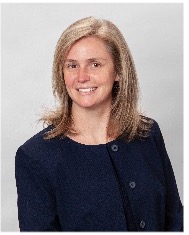 Kirsten Leute is Partner, University Relations at Osage University Partners (OUP), a venture capital firm that invests in deep science startups out of academic research institutions. In leading University Relations for OUP, Kirsten is responsible for the relationships with approximately 100 academic institutions that are partnered with the fund, engaging potential new partner institutions, and creating and delivering value-add programs for the partnered academic institutions and their entrepreneurs.
Kirsten Leute is Partner, University Relations at Osage University Partners (OUP), a venture capital firm that invests in deep science startups out of academic research institutions. In leading University Relations for OUP, Kirsten is responsible for the relationships with approximately 100 academic institutions that are partnered with the fund, engaging potential new partner institutions, and creating and delivering value-add programs for the partnered academic institutions and their entrepreneurs.
Kirsten is an experienced technology transfer professional, having spent 19 years in technology transfer at Stanford University and the German Cancer Research Center. Prior to joining OUP, she was Associate Director at Stanford’s Office of Technology Licensing. Over her career at Stanford, she managed portfolios of inventions in most technology areas, but concentrated in biotechnology.
Kirsten continues to be actively involved in technology transfer and university startups outside her daily work. She leads OUP’s efforts in working on Equalize, a virtual mentor program and pitch competition designed to take national action around the disparity of women academic inventors forming university startups, that was started by Washington University in St. Louis.
She is currently on advisory boards for the University of Michigan, University of Arizona, University of California, Santa Cruz, and Brown University technology commercialization offices, is an Adcom member for America’s Seed Fund (SBIR/STTR out of NSF), is a former board member of Women in Bio, and is a former two-time board member for the Association of University Technology Managers.
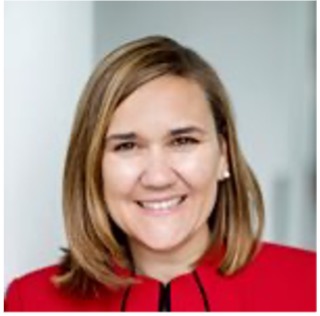 Nichole Mercier, PhD, is the Assistant Vice Chancellor for Washington University in St. Louis & the Office of Technology Management’s Managing. Dr. Mercier started her career in tech transfer at Boston Children’s Hospital before moving to St. Louis in 2005 as a member of OTM’s licensing team. In addition to leading tech transfer, she is dedicated to improving how underserved academic innovators participate in commercializing research. She developed and instituted WashU’s Women in Innovation and Technology (WIT) program to engage female innovators in technology transfer, and in 2020, she created the national event, Equalize, to empower academic women in entrepreneurship.
Nichole Mercier, PhD, is the Assistant Vice Chancellor for Washington University in St. Louis & the Office of Technology Management’s Managing. Dr. Mercier started her career in tech transfer at Boston Children’s Hospital before moving to St. Louis in 2005 as a member of OTM’s licensing team. In addition to leading tech transfer, she is dedicated to improving how underserved academic innovators participate in commercializing research. She developed and instituted WashU’s Women in Innovation and Technology (WIT) program to engage female innovators in technology transfer, and in 2020, she created the national event, Equalize, to empower academic women in entrepreneurship.
 Jim O’Connell is the Assistant Vice President of Commercialization, and Director of Tech Transfer, responsible for commercializing and translating UF technologies into the marketplace as well as all startup activity and its two world class business incubators. Jim has a broad background in business and product development as well as an extensive technology transfer experience from the University of Michigan and the University of Miami. He also has large corporate experience from Stryker Instruments, as well as startup experience from Xoran Technologies and Sensicore. In his more than 20 years in industry, Jim’s roles have always focused on growing and establishing businesses while commercializing new, high tech products, with both operations and engineering responsibilities. He has helped commercialize over 35 different products including biomaterials, RF Ablation devices, infusion pumps, surgical power tools, high volume sterile disposables, CT Scanners, surgical navigation systems, resorbable plates and screws, and amperometric electrochemical sensors and is also a patented inventor. He has a BS in Aeronautical Engineering from Rensselaer and an MS in Engineering Management from the University of Maryland. Prior to industry, Jim was a helicopter pilot in the U.S. Air Force.
Jim O’Connell is the Assistant Vice President of Commercialization, and Director of Tech Transfer, responsible for commercializing and translating UF technologies into the marketplace as well as all startup activity and its two world class business incubators. Jim has a broad background in business and product development as well as an extensive technology transfer experience from the University of Michigan and the University of Miami. He also has large corporate experience from Stryker Instruments, as well as startup experience from Xoran Technologies and Sensicore. In his more than 20 years in industry, Jim’s roles have always focused on growing and establishing businesses while commercializing new, high tech products, with both operations and engineering responsibilities. He has helped commercialize over 35 different products including biomaterials, RF Ablation devices, infusion pumps, surgical power tools, high volume sterile disposables, CT Scanners, surgical navigation systems, resorbable plates and screws, and amperometric electrochemical sensors and is also a patented inventor. He has a BS in Aeronautical Engineering from Rensselaer and an MS in Engineering Management from the University of Maryland. Prior to industry, Jim was a helicopter pilot in the U.S. Air Force.
 Bryn Rees is Associate Vice Chancellor for Research & Innovation and Managing Director of Venture Partners at CU Boulder. Together with his team, he works with university researchers and the extended innovation ecosystem to commercialize innovations created at CU. Bryn oversees all Venture Partners functions, including entrepreneurship training and mentorship, the I-Corps Hub, Ascent deep tech accelerator, the Lab Venture Challenge and other founder funding opportunities, intellectual property management, licensing, and strategic partnerships. Venture Partners directly supports larger campus goals of innovation, positive societal impact, and faculty and student development.
Bryn Rees is Associate Vice Chancellor for Research & Innovation and Managing Director of Venture Partners at CU Boulder. Together with his team, he works with university researchers and the extended innovation ecosystem to commercialize innovations created at CU. Bryn oversees all Venture Partners functions, including entrepreneurship training and mentorship, the I-Corps Hub, Ascent deep tech accelerator, the Lab Venture Challenge and other founder funding opportunities, intellectual property management, licensing, and strategic partnerships. Venture Partners directly supports larger campus goals of innovation, positive societal impact, and faculty and student development.
Within the larger Colorado community, Bryn serves on the Investment Advisory Board of the Buff Venture Fund, the board of the Colorado Bioscience Association, and the Boulder Subcommittee of the Innosphere Ventures board.
Bryn has been with the University of Colorado since 2009 and prior to that was with the industry liaison office at the University of British Columbia. He began his career in research innovation in the private sector, where he managed disease genetics and pharmacogenetics research at a leading pharmaceutical company. He holds an undergraduate degree in biochemistry from the University of Victoria, a master's in biotechnology from the University of Toronto, and a second master’s degree in counseling psychology.
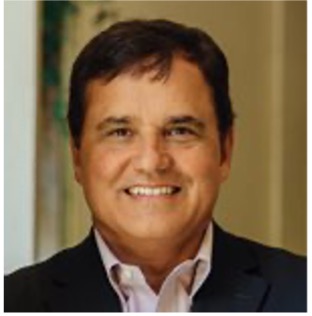 Todd Sherer has led Emory’s Office of Technology Transfer since 2003. During that time, he transformed the program into an internationally recognized leader in academic technology transfer. He introduced the use of product pipelines to illustrate the important role that research plays in the innovation pathway and built a team of professionals focused on risk-reduction and value creation. He was able to combine industry sponsored research with technology transfer to create a one-stop shop for companies looking to partner with Emory researchers. Other accomplishments include the creation of an in-house patent group to reduce costs while aligning patenting and licensing functions, and a dedicated technology scout function to increase the disclosure of new inventions.
Todd Sherer has led Emory’s Office of Technology Transfer since 2003. During that time, he transformed the program into an internationally recognized leader in academic technology transfer. He introduced the use of product pipelines to illustrate the important role that research plays in the innovation pathway and built a team of professionals focused on risk-reduction and value creation. He was able to combine industry sponsored research with technology transfer to create a one-stop shop for companies looking to partner with Emory researchers. Other accomplishments include the creation of an in-house patent group to reduce costs while aligning patenting and licensing functions, and a dedicated technology scout function to increase the disclosure of new inventions.
In 2005, Dr. Sherer worked with colleagues to monetize Emory’s future HIV drug royalties for Emtriva, resulting in a one-time payment of $540 million to Emory—the largest royalty monetization of its kind at that time. He has been involved in transferring technology that led to FDA approval of several new drug therapies and medical devices, as well as many other products. He has also worked with dozens of faculty-driven startup companies over the years where he guided them in their pursuit investment dollars and management teams.
He is a Past President of the Association of University Technology Managers (AUTM), the professional association representing more than 3,000 technology transfer professionals from more than 30 countries.Early in his career, Dr. Sherer became a Registered Patent Agent with the United States Patent and Trademark Office. He is also a Certified Licensing Professional (CLP™) and a Registered Technology Transfer Professional (RTTP). He received the Georgia BIO Community Award in 2014 and its Industry Growth Award in 2016 for his contributions to the life science industry in Georgia. He is a Past Chairman of Southeast BIO (SEBIO), a regional non-profit organization that fosters the growth of the life science industry in the Southeast US. He has served on other boards and councils over the years including his role as President, EmTech Biotechnology Development, Inc—a joint-venture biotechnology incubator between Emory University and the Georgia Institute of Technology.
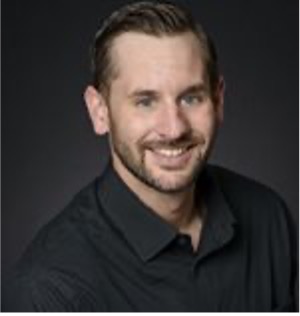 Eric Smith brings with him almost a decade’s worth of technology commercialization experience and a passion for entrepreneurship. Smith came to the UA Center for Innovation after serving as the commercialization network manager for Tech Launch Arizona (TLA), the UA’s office responsible for moving UA research and technological innovation into the marketplace. While at TLA, he focused on building and leveraging a network of domain experts and business leaders who consult on university technologies to help reveal their commercial relevance as they are prepared for the market. He also managed TLA's National Science Foundation Innovation-Corps (I-Corps) Site grant program which teaches inventing teams about lean startup methodology and customer discovery. An entrepreneur in his own right, after Eric started, developed and sold his first company, he embarked on a career in various technology startups. Smith holds a BSBA in business management and entrepreneurship and an MBA from the University of Arizona. He is a local Tucsonan with a passion for economic development through startup creation and community involvement. He sits on the boards of the Tucson Jewish Community Center and the International Business Innovation Association is a member of groups such as the Tucson Metro Chamber’s Emerging Leaders Council and Tucson Young Professionals.
Eric Smith brings with him almost a decade’s worth of technology commercialization experience and a passion for entrepreneurship. Smith came to the UA Center for Innovation after serving as the commercialization network manager for Tech Launch Arizona (TLA), the UA’s office responsible for moving UA research and technological innovation into the marketplace. While at TLA, he focused on building and leveraging a network of domain experts and business leaders who consult on university technologies to help reveal their commercial relevance as they are prepared for the market. He also managed TLA's National Science Foundation Innovation-Corps (I-Corps) Site grant program which teaches inventing teams about lean startup methodology and customer discovery. An entrepreneur in his own right, after Eric started, developed and sold his first company, he embarked on a career in various technology startups. Smith holds a BSBA in business management and entrepreneurship and an MBA from the University of Arizona. He is a local Tucsonan with a passion for economic development through startup creation and community involvement. He sits on the boards of the Tucson Jewish Community Center and the International Business Innovation Association is a member of groups such as the Tucson Metro Chamber’s Emerging Leaders Council and Tucson Young Professionals.
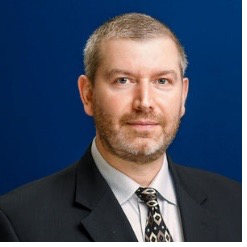 James Thompson is currently the Associate Vice President for Innovation at the University of Notre Dame,a General Partner at the Pit Road Fund ($23M Seed Fund) and a mentor to 10 aspiring CEOs. Additionally, James is on the Board of Directors of the for profit companies TayCo Brace, Vital View, Grannus Therapeutics, Aeris Surgical, Lumen Biologics, Patterson Greenfield, Importin Joe's Coffee, Irish Woodworks and HelloFrom. While at the University of Notre Dame, James has helped to set up the IDEA Center and implement the Commercialization Engine, a system to assist inventors and entrepreneurs successfully start and fund companies. Since the inception of the IDEA Center, 144 companies have been started that have raised $54 million in investment with an aggregate revenue of $31M.
James Thompson is currently the Associate Vice President for Innovation at the University of Notre Dame,a General Partner at the Pit Road Fund ($23M Seed Fund) and a mentor to 10 aspiring CEOs. Additionally, James is on the Board of Directors of the for profit companies TayCo Brace, Vital View, Grannus Therapeutics, Aeris Surgical, Lumen Biologics, Patterson Greenfield, Importin Joe's Coffee, Irish Woodworks and HelloFrom. While at the University of Notre Dame, James has helped to set up the IDEA Center and implement the Commercialization Engine, a system to assist inventors and entrepreneurs successfully start and fund companies. Since the inception of the IDEA Center, 144 companies have been started that have raised $54 million in investment with an aggregate revenue of $31M.
Previously, James was at the Technology & Venture Commercialization office (TVC) at the University of Utah serving as the Interim Executive Director, Director Engineering Team and Business and Technology Manager, James helped to develop and implement a stage gated, milestone driven commercialization process called the Utah Model of Commercialization or affectionately called the Commercialization Engine (the precursor to what has been developed at the University of Notre Dame). The system substantially improved both internal and external customer service while increasing the commercialization activity of technologies developed and owned by the University of Utah.
Prior to the University of Utah, James was the Director of Business Development and Director of New Product Development for chemical company (Frontier Scientific) and a research reagents company (Echelon Biosciences). In these companies, James released over 200 new products (resulting in an increase of total product offering by 15% and set up collaborations with over 27 entities.
James has also helped in the founding of Quansys Biosciences, PetroBio Tech, Energy Innovation Services, Inc., Spendlove Medical Research Institute and Allerief.
James has an MS and BS in Biology from Utah State University and an AS in Biology from BYU-Idaho.
 Kyrsten Woolstenhulme is the Director of Innovation Management at the University of Utah’s PIVOT Center. Kyrsten draws on her combined business and engineering experience to help accelerate the translation of scientific discoveries to commercial products. She collaborates with inventors, entrepreneurs, and corporate executives to shape and execute on sustainable business strategies, foster partnerships within the community, and match potential management teams with promising technologies. Kyrsten also leads or supports licensing deals with new startups being spun out of the University. When not engaging with Utah’s innovation ecosystem, she utilizes her process improvement and project coordination experience to improve office efficiency through special projects. Kyrsten received her Bachelor of Science in Management with an emphasis in Organizational Leadership and a minor in Biomedical Engineering from the University of Utah. She also earned an MBA from the David Eccles School of Business. Kyrsten is a Certified Associate in Project Management and holds a Lean Six Sigma Green Belt certification. Prior to her current role, Kyrsten performed in-depth analyses of unmet market needs and trends in life science industries. Her work included conducting a competitive analysis of University technologies, evaluating market opportunity, developing marketing collateral, and identifying potential licensees. Kyrsten also has a background in life sciences research, having completed an undergraduate Merrill Engineering Scholars Fellowship at the Huntsman Cancer Institute. While there, she focused on improving treatment options for patients with lung cancer by studying the mechanisms of drug response and resistance in order to personalize cancer therapies.
Kyrsten Woolstenhulme is the Director of Innovation Management at the University of Utah’s PIVOT Center. Kyrsten draws on her combined business and engineering experience to help accelerate the translation of scientific discoveries to commercial products. She collaborates with inventors, entrepreneurs, and corporate executives to shape and execute on sustainable business strategies, foster partnerships within the community, and match potential management teams with promising technologies. Kyrsten also leads or supports licensing deals with new startups being spun out of the University. When not engaging with Utah’s innovation ecosystem, she utilizes her process improvement and project coordination experience to improve office efficiency through special projects. Kyrsten received her Bachelor of Science in Management with an emphasis in Organizational Leadership and a minor in Biomedical Engineering from the University of Utah. She also earned an MBA from the David Eccles School of Business. Kyrsten is a Certified Associate in Project Management and holds a Lean Six Sigma Green Belt certification. Prior to her current role, Kyrsten performed in-depth analyses of unmet market needs and trends in life science industries. Her work included conducting a competitive analysis of University technologies, evaluating market opportunity, developing marketing collateral, and identifying potential licensees. Kyrsten also has a background in life sciences research, having completed an undergraduate Merrill Engineering Scholars Fellowship at the Huntsman Cancer Institute. While there, she focused on improving treatment options for patients with lung cancer by studying the mechanisms of drug response and resistance in order to personalize cancer therapies.